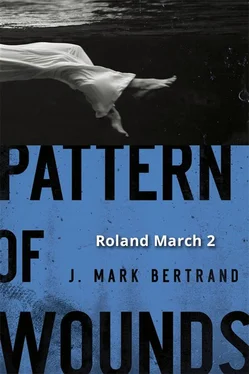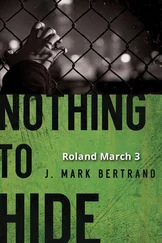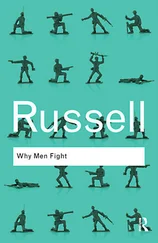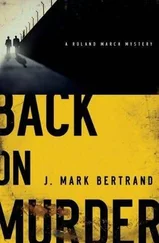J. Bertrand - Pattern of Wounds
Здесь есть возможность читать онлайн «J. Bertrand - Pattern of Wounds» весь текст электронной книги совершенно бесплатно (целиком полную версию без сокращений). В некоторых случаях можно слушать аудио, скачать через торрент в формате fb2 и присутствует краткое содержание. Год выпуска: 0101, Издательство: Baker Publishing Group, Жанр: Полицейский детектив, на английском языке. Описание произведения, (предисловие) а так же отзывы посетителей доступны на портале библиотеки ЛибКат.
- Название:Pattern of Wounds
- Автор:
- Издательство:Baker Publishing Group
- Жанр:
- Год:0101
- ISBN:нет данных
- Рейтинг книги:3 / 5. Голосов: 1
-
Избранное:Добавить в избранное
- Отзывы:
-
Ваша оценка:
- 60
- 1
- 2
- 3
- 4
- 5
Pattern of Wounds: краткое содержание, описание и аннотация
Предлагаем к чтению аннотацию, описание, краткое содержание или предисловие (зависит от того, что написал сам автор книги «Pattern of Wounds»). Если вы не нашли необходимую информацию о книге — напишите в комментариях, мы постараемся отыскать её.
Pattern of Wounds — читать онлайн бесплатно полную книгу (весь текст) целиком
Ниже представлен текст книги, разбитый по страницам. Система сохранения места последней прочитанной страницы, позволяет с удобством читать онлайн бесплатно книгу «Pattern of Wounds», без необходимости каждый раз заново искать на чём Вы остановились. Поставьте закладку, и сможете в любой момент перейти на страницу, на которой закончили чтение.
Интервал:
Закладка:
“Of course, I had no idea about this when I interviewed Guzman in 2005 on my earlier case. He’d overseen some construction work on the victim’s house, and I had a witness who saw a pickup in the neighborhood the evening of the crime and gave a description that more or less matched Guzman’s truck. But he was drinking cervezas at a taquería while my victim was getting herself killed and he had half a dozen men who’d back his story, all of them employees. I didn’t like it, but what could I do?”
He taps the keyboard again, showing a copy of a Louisiana police report.
“Here’s the clincher. In 2006, the year we had none of these homicides, Raúl Guzman took a truckload of construction workers to Lake Charles, Louisiana, and made a bundle doing cut-rate repairs after Hurricane Rita blew all the roofs off. The local police talked to Guzman and two of his men for trespassing. They confronted a sunbathing teenage girl in her own backyard and a neighbor called police. Guzman said they’d been talking to the girl about fixing her roof, but that’s not what she said.”
“Did this go to court?” the DA asks.
Lauterbach shakes his head. “At the time, the officers accepted Guzman’s story that it was all a misunderstanding. They chalked it up to the language barrier. But knowing what we know, it looks like something else entirely.”
“So the theory is what?” Bascombe asks. “That Guzman and his crew are responsible for all of these homicides, that they’re working together? There’s no evidence of more than one suspect in the Walker case.”
“It’s too early for me to say exactly,” Lauterbach replies. “I’ve had as much trouble liaising with other agencies as I had with you. But it’s certainly a possibility. Where there are differences in the individual homicides, that could be the result of different workers being with him.” He glances over his shoulder at Bodeen. “But that really is speculation. Maybe Guzman is working alone. Maybe he’s not even the right guy. That’s something that needs investigating. So long as we’re wasting time on the one guy we know ain’t responsible, that’s not gonna happen, is it?”
“Let’s get the lights back on,” the DA says. “When we break up here, I want to review all this in more detail, Detective Lauterbach. In the meantime, I’m going to ask Lt. Bascombe to ensure that his people widen their investigation to accommodate the possibility of a serial killer. That does not mean that Donald Fauk didn’t murder his wife. At least for now, these are two separate issues. But if it turns out Fauk is innocent, I do not want to hold a press conference saying so unless I can name Guzman or whoever is responsible at the same time. Am I making myself clear, everybody?”
Perfectly clear. Lauterbach packs his laptop away with a smile on his lips, realizing what a huge concession he’s won. Bascombe isn’t looking at me, and Wilcox has a hand over his brow, looking like an actor in an aspirin commercial. The crime scene supervisor is still inspecting his copy of the appeal, trying to will himself into invisibility. The DNA evidence has only come up obliquely, and he couldn’t have relished the task of defending HPD’s disastrous track record on that score.
As the meeting breaks up, I can feel it starting already: the random whispers, the sighs of relief, and cutting through all that, a new energy, a new sense of purpose. The gathered prosecutors are feeling their way toward galvanization. Evil has a face now. There’s a target to hunt down. They entered the room afraid of one homicide opening up again, and now they’re leaving with the dream of closing twenty-five. Who wouldn’t make a trade like that?
Wilcox slips toward the door. Since Bascombe seems to be angling for some one-on-one time with the DA, I follow my ex-partner out, hoping to get his take on what’s transpired. Bodeen frowns as I pass, but he doesn’t say anything. The slide show seems to have dampened his enthusiasm for me.
“This is classic you ,” Wilcox says.
We have the elevator all to ourselves, ticking off the floors.
“What is that supposed to mean?”
“Dragging me into it, expecting me to cover for you-”
“You don’t have to cover for anything, Stephen. You were there, remember? You know the confession is good.”
“Here’s what I know,” he says. “I know I wanted to stay with Fauk when you went to pick up that rental, and you left him with Fontenot instead. I know I tried to stop you from doing the interview in the car, and you went ahead and did it anyway.”
“But listen-”
“No, you listen. If you did anything, anything at all. . I’m not in Internal Affairs for nothing. I will come down on you like a ton of bricks, March. I promise you that. I already know you’ll sacrifice your own career, but you’re not dragging me down with you, understand?”
The elevator stops on the ground floor and the doors slide open. He bolts, leaving me undecided about whether to follow. What’s the point? He will believe whatever he wants, regardless of the facts. Wilcox is like Lauterbach in that sense, letting his preconceived idea rearrange the world around him, only Wilcox is obsessed with corruption instead of serial killers. Either way, we see what we want to see, making connections where there are none, ignoring obvious links when they become inconvenient.
I’ll say this for each of them. At least their ruling passions make them popular. There will always be ears ready to listen. Police corruption is an explanation you can get your head around, just like a serial-killing psychopath. The cops are bent because they’re cops. The killers kill because they’re killers. And all you have to do to end the corruption or the killing is put the person responsible behind bars. It’s an easy cause to rally round. And of course there are bent cops and serial killers, though not as many as people seem to think.
As I’m standing there, Charlie Bodeen breezes past, his shoulder dipped by the weight of his accordion case.
“You got taken,” he says.
Brad Templeton has a little place on Peden Street, a one-story in gray brick with white trim and a red Mitsubishi SUV under the carport. Instead of a yard, there’s a layer of fist-sized rock, an artificial riverbed accented with an ironic cactus here and there. He writes at a large table in the living room, where a wall of glass looks out over the equally rock-strewn backyard. Attached to the worn fence, a bright red bird feeder, and underneath it a stone birdbath.
Instead of knocking, I cut through the carport and let myself into the back, my leather soles making a crunching sound against the rock. Through the window I see him bent over his computer keyboard, fingers rapid as a piece of machinery, a chewed pencil between his teeth. When I pound against glass, Templeton jumps.
“You lied to me,” I say.
He sits there frozen.
“Open up, Brad. It’s your day of reckoning.”
“What do you want?”
My fist sends vibrations through the windowpane. One, two, three. “Open up.” Four, five, six. “Don’t make me break it, Brad. And don’t think I won’t.”
He circles the table and unhitches the lock, dragging the door open to release a rush of warm air. That’s a strange feeling in Houston, heat blasting from inside instead of out. Without a word, he retraces his steps, dropping back into his chair with a groan.
“Roger Lauterbach,” I say. “Tell me everything.”
Templeton rubs his eyes. “He’s a detective.”
“Keep going.”
“He works for the Sheriff’s Department.”
“And?”
“He’s an expert on Dean Corll, which is how I met him. He gave a talk about Corll for a local group, focusing on the police response or lack thereof. He told me he wanted to write a book someday-who doesn’t, right? — and we compared notes. A couple of weeks later, I got a call from him. He’d read all my books in the meantime and wanted to talk.”
Читать дальшеИнтервал:
Закладка:
Похожие книги на «Pattern of Wounds»
Представляем Вашему вниманию похожие книги на «Pattern of Wounds» списком для выбора. Мы отобрали схожую по названию и смыслу литературу в надежде предоставить читателям больше вариантов отыскать новые, интересные, ещё непрочитанные произведения.
Обсуждение, отзывы о книге «Pattern of Wounds» и просто собственные мнения читателей. Оставьте ваши комментарии, напишите, что Вы думаете о произведении, его смысле или главных героях. Укажите что конкретно понравилось, а что нет, и почему Вы так считаете.












